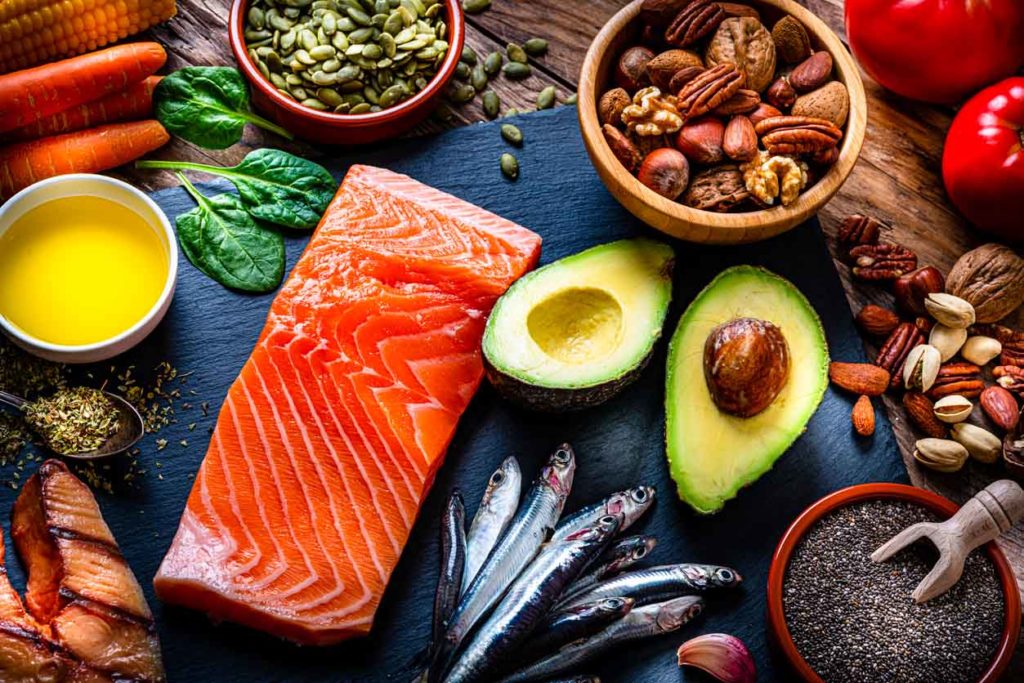A healthy diet is an important part of longevity, quality of life, and wellbeing, and can prevent many chronic ailments. Inflammation is one of many chronic issues that a well-balanced diet can prevent.
What is Inflammation?
Inflammation is part of our bodies’ natural immune response to injuries, toxins, and pathogens. When cells are damaged or threatened, our immune systems release chemicals, proteins, and antibodies that work to repair or defend them. The body also increases blood flow to the damaged cells to transport these materials, causing inflammation.
Typically, inflammation only lasts until the damaged cells are repaired—a couple of days or weeks. However, chronic inflammation can occur if the body determines that cells are still damaged or under attack. Chronic inflammation can be painful and cause a multitude of other negative effects.
Symptoms of Chronic Inflammation
Acute inflammation lasts only a few days. A scraped knee or a cut will swell up as the body repairs the cells and subside quickly when the work is done.
On the other hand, symptoms of chronic inflammation are much harder to observe, and can cause a wide range of nagging symptoms, including:
- depression or anxiety
- gastrointestinal irritation (diarrhea, upset stomach, or constipation)
- fatigue or weakness
- weight fluctuations
- constant infections
These symptoms vary from person to person and can last for many months or years.
Causes of Chronic Inflammation
The causes of inflammation can be hard to trace, but often include:
- autoimmune disorders
- infections or injuries that haven’t been properly addressed
- environmental toxins
- poor diet
- obesity
- stress
- substances like alcohol or tobacco
In some cases, the causes of inflammation are hard to determine, or can be a combination of factors. Additionally, some people respond differently to different causes.
Effects of Chronic Inflammation
Over time, the effects of chronic inflammation in one area of the body can affect other areas, causing damage to tissues, cells, and organs.
Chronic inflammation has been correlated to other more serious diseases and health conditions, including:
- rheumatoid arthritis
- heart disease
- cancers
- type 2 diabetes
- dementia
- obesity
Ways of Managing Chronic Inflammation
Chronic inflammation can be often be successfully treated with over-the-counter anti-inflammatory drugs such as aspirin or ibuprofen, but these drugs can elevate the risk for other unwanted diseases of the kidneys or ulcers. Therefore, they’re not good long-term solutions to chronic inflammation.
Steroids are also used for short periods of time to reduce inflammation in some cases. They also increase the risk of unwanted side effects like high blood pressure or vision problems, and typically aren’t a long-term solution either.
While medicines and steroids are effective for short periods of time, the long-term side risks outweigh the short-term rewards. For this reason, a healthy diet of anti-inflammatory foods is the most sustainable way to help your body deal with chronic inflammation.
Foods to Help Manage Chronic Inflammation
There are a number of foods that are known to help with chronic inflammation. Typically, they contain polyphenols or antioxidants.
- blueberries
- cherries
- strawberries
- kale
- spinach
- leafy greens
- tomatoes
- oranges
- olive oil
- fatty fish (salmon or mackerel)
- almonds
- walnuts
- coffee
- green tea
Foods that Increase Inflammation
There are several types of food that one must be sure to avoid to reduce inflammation as well.
These include:
- fried foods
- soda
- refined carbohydrates (white bread or sweets)
- processed meats
- red meats
The Importance of A Well Balanced Diet
Everybody has different dietary needs, depending on lifestyle, but it’s easy to see the importance of a well-balanced diet when it comes to reducing inflammation. Next time you’re at the grocery store, make sure you’re filling your cart with plenty of anti-inflammatory foods and avoiding foods high in sodium, sugars, and processed ingredients.
As always, consult your primary care physician if you’re concerned about chronic inflammation or considering making drastic changes to your diet or lifestyle. Schedule your next appointment online with Blue Sky MD Health if you’re overdue for an annual wellness visit or contact us for more information on chronic inflammation.





